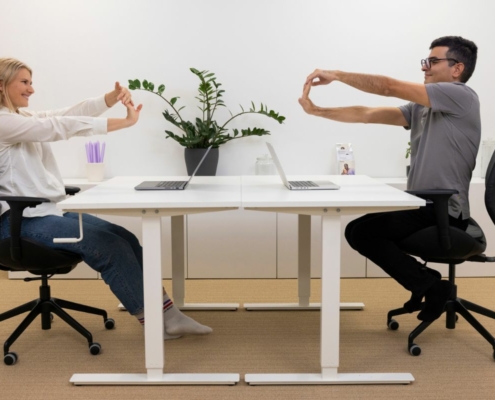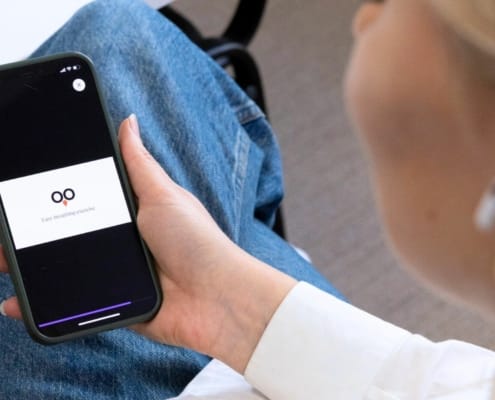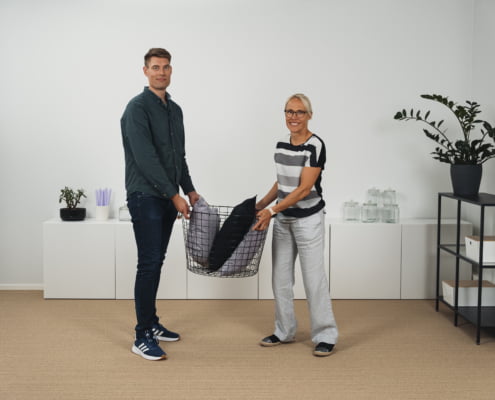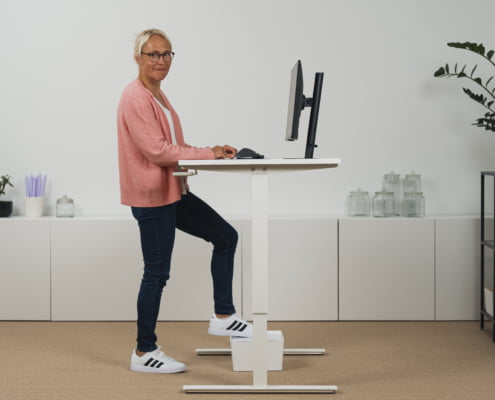
Cuckoo’s Latest Feature: Statistics to Motivate and Support Break Exercise
At Cuckoo, we constantly improve our app to better meet the needs of our users and offer an enhanced user experience. Our goal is to encourage regular breaks during the workday and support holistic wellbeing.

Box Breathing: A Simple Technique for Managing Stress and Enhancing Wellbeing
In an increasingly busy and high-stress world, the need for accessible, effective stress management techniques is greater than ever.

Boost employee wellbeing with regular breaks
Employee wellbeing is more than just physical health; it includes mental, emotional, and social dimensions as well. In this article we tell you how supporting employee wellbeing can make a huge difference in your company.

Stress management in the workplace: The power of taking short breaks
In this article we tell you why stress management in the workplace matters and how taking short breaks during the workday can help manage stress.

Brain fog and how regular breaks help prevent it
Many of us have experienced times when thoughts won’t flow, concentration is difficult, and even simple tasks feel exhausting. This phenomenon is known as brain fog. Although it’s not an official medical diagnosis, those who suffer from it may feel tired, confused, and ineffective.

Workplace ergonomics and why taking short breaks helps
Building a high performing team isn't always a piece of cake. In this article we tell you how you can support high performing teams by incorporating regular short breaks into the teams daily work.

Building a high performing team: The secret power of regular breaks
Building a high performing team isn't always a piece of cake. In this article we tell you how you can support high performing teams by incorporating regular short breaks into the teams daily work.

Mindful Breathing as a Stress Management and Recovery tool
In today’s fast-paced world, where stress levels are constantly high, finding effective ways to unwind and recover is more important than ever. While the role of exercise, nutrition, and sleep in recovery is widely acknowledged, one of the most powerful recovery tools is something we don’t necessarily recognise: breathing.

The Impact of Movement and Short Breaks in Enhancing Cognitive Ergonomics
It is becoming increasingly clear that our current ways of working are taking a toll on our mental wellbeing. However, there is a simple yet effective solution that can help mitigate these challenges: incorporating regular movement and breaks into our daily routines.

Five Tips from Mehiläinen’s Occupational Health Physiotherapists for Improving Physical Well-being in Retail and Customer Service Jobs
Knowledge work stresses the brain, while physical work strains the body. It’s essential to take care of both physical and mental recovery. Physical exertion is good for the body, but recovery should be prioritized during the workdays to prevent stiffness and promote wellbeing. This way, you'll still have energy left for other activities after the workday.

Five Tips from Mehiläinen’s Occupational Health Psychologist: How to Recover During the Workday
Have you thought about how much strain your brain is under? Are you recovering well during the workday? Have you remembered to take breaks and eat your lunch on time?
For knowledge workers, the number of mistakes increases and decision making abilities weaken when the brain is overloaded, and workdays are excessively long. In certain professions, this can even be dangerous, such as for vehicle drivers or pilots. But regardless of your job, it’s important to focus on recovery not only during your free time but also throughout the workday.

Four Tips from Mehiläinen’s Occupational Health Physiotherapists for Better Workplace Ergonomics
Remote and hybrid work has become more common in many workplaces, and technology enables working from various locations. While this flexibility is convenient, it has also increased irregular working hours, poor postures, and further reduced physical activity. No matter where or how you work, it's important to act before your body starts to “complain.”